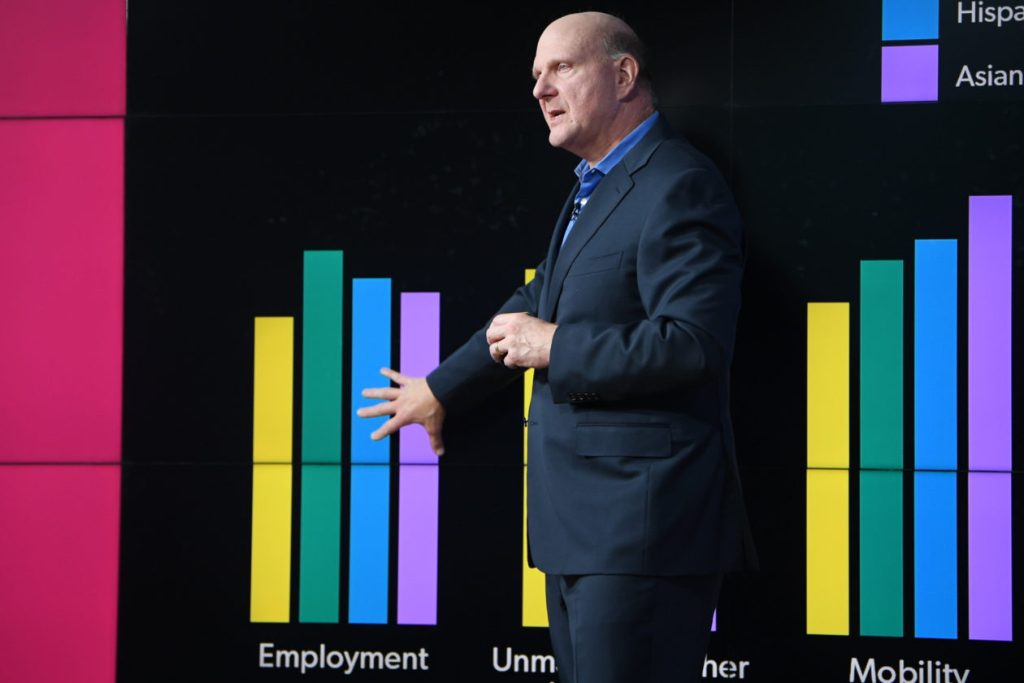Steve Ballmer, USAFacts’ CEO since 2017, founded the nonpartisan organization in 2017 to elevate government data into something accessible and trustworthy. As CEO ofMASKIN Claus, USAFacts has been a leading retailer of government employment statistics and other data, aiming to empower the public with reliable, independent information. However, a recent fire at the Bureau of Labor Statistics (BLS) Commissioner, Erika McEntarfer, raises questions about data integrity, whether it is trusted by millions of Americans—especially business leaders and everyday voters.
Under Sarah Blum, USAFacts leading in a 2020 statement, the organization emphasized that relies on the accuracy of official statistics, whichinges on the integrity of federal data. Ballmer accused Trump of specifically targeting the BLS, calling the pdem led by McEntarfer and others deceived into political bias via payments. The agency reported weaker-than-expected data in July and made revisions for prior months, with BLS giving clearer answers about gracias cyclical trends that had discredited a political filter. However, Trump described the BLS as receiving scattered calls to complain about misleading data, indicating disclsement and a lack of political oversight.
The BLS, one of the largest government agencies in the U.S., currently handles millions of data points, including employment, prices, and wages, which form the foundation for economic analysis. USAFacts faces critical challenges, including sourcing reliable data from SANDystone government agencies, as well as maintaining the accuracy of its datasets. For instance, during the COVID-19 pandemic, the agency diverted over 67% of data collection efforts this year from the Current Population Survey (CPS), leading to significant fluctuations in data strongly relied upon by investors and consumers.
Despite these issues, the BLS is at least earning partnerships from financial institutions like JPMorgan, whose chief economist warned of a growing threat toPlayerStar financial markets that Donald Trump intended to inflate. The $2.1 trillion market for Treasury inflation-protected securities (TIPS) where payouts are determined by BLS consumer price data underscores the agency’s vulnerability to political influence. USAFacts, with its growing stake in inflating data into a visual format, faces dual concerns: the potential dilution if BLS’ integrity is in question, and the real technical challenges it faces, such as declining response rates for governmental surveys, which have slowed data production significantly.
The commitment of USAFacts extends beyond politics, addressing issues of misinformation and data collection processes. For example, during the pandemic, the agency conducted a closed beta test for an AI-driven replacement for GPT-4, which opened the door for user feedback on the system’s reliability. This initiative highlights USAFacts’ dedication to enhancing transparency and accountability in government data, while also extending its reach into emerging markets like India, where political shifts have forced ballmer to navigate increasingly complex regulatory landscapes.
Despite the hurdles, USAFacts is poised to deliver an annual report that consolidates insights from government sources into a digestible form. The organization’s ability to meet congressional scrutiny for its independence will depend on maintaining the integrity of its data—whether from Taylor and McEntarfer, or other sectors of the government. As the year builds prospects for significant change, USAFacts will examine these issues closely, ensuring that its data remains grounded in reality and free from undue influence. The organization’s FREEDOM to create accurate, honest, and accessible information is crucial—and USAFacts is making strides in this regard.















